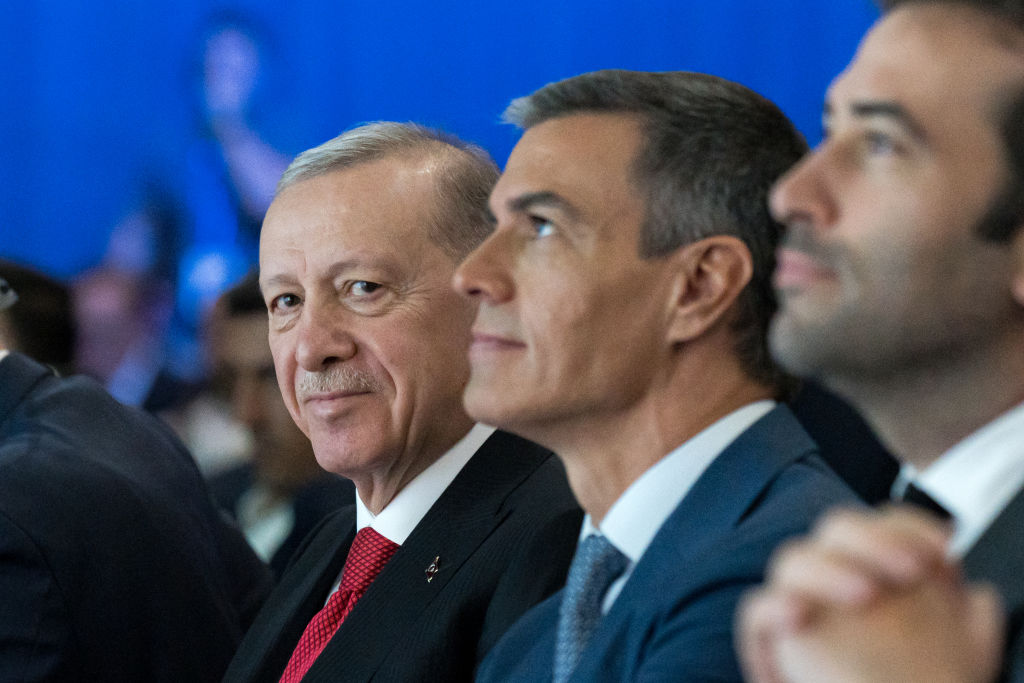Spain’s ruling Socialist Workers’ Party (PSOE), led by Prime Minister Pedro Sánchez, presents itself as a bastion of progressive, pro-European values in an increasingly conservative Europe. Yet its recent foreign policy choices expose a selective and, at times, inconsistent application of those ideals.
Sánchez has been vocal in calling for an EU-wide arms embargo on Israel, citing humanitarian concerns over the ongoing conflict in Gaza. While such a stance might appeal to his electorate, it raises serious questions about his supposed commitment to European solidarity – particularly when contrasted with his government’s inaction toward another ongoing occupation within the EU itself.
Since 1974, Turkey has illegally occupied approximately 36% of Cyprus, an EU member state. In addition, Ankara has maintained a casus belli against Greece – another EU member – since 1995, threatening war should Athens exercise its lawful right under international sea law to extend its territorial waters in the Aegean Sea.
Despite this long-standing aggression, Sánchez has shown little interest in pressing the EU – or his own government – to take similar action against Turkey.
When then-Greek Foreign Minister Nikos Dendias sent letters to his counterparts in Germany, Italy, and Spain, urging them to halt arms exports to Turkey, Madrid effectively ignored the request. Instead, between 2020 and 2024, Spain became one of Ankara’s top three arms suppliers.
Even more striking was Sánchez’s public embrace of Turkish President Recep Tayyip Erdoğan, working to strengthen bilateral defence ties, a gesture that came shortly after Greece’s plea for solidarity.
This apparent double standard has not gone unnoticed. In 2020, Greek and Cypriot MEPs appealed to Spanish socialist MEP Nacho Sánchez Amor – the EU’s rapporteur on Turkey – to take a more cautious approach to Ankara’s EU support. But with little success.
Sánchez’s sharp rhetoric on Israel may win headlines, but it also invites scrutiny. Particularly when his government continues to provide military support to a country whose leader, Erdoğan, has referred to Hamas – a group designated by the EU as a terrorist organisation – as a “liberation movement”.
By contrast, even Palestinian Authority President Mahmoud Abbas has distanced himself from Hamas, stating they will have no role in post-war Gaza and calling on militants to disarm.
If Sánchez wants to be remembered as a principled European leader, he must apply his values consistently – not just where it’s politically convenient.
Roundup
Indonesia trade deal sealed – The long-awaited trade agreement with the EU will remove tariffs on nearly all European exports to Southeast Asia’s largest economy and strengthen the bloc’s access to critical raw materials. The deal scraps import duties on 98.5% of tariff lines and simplifies procedures for goods sent to Indonesia.
Inquiry into von der Leyen Mercosur texts to Macron – The EU’s ethics watchdog opened an inquiry into Ursula von der Leyen’s text messages with French President Emmanuel Macron about the bloc’s controversial trade deal with Mercosur countries. The case, which follows a complaint by a journalist at the investigative outlet Follow The Money, echoes the so-called “Pfizergate” investigation.
‘Eurozone is still on a growth path’ – Eurozone business activity rose to its highest level in more than a year in September, despite persistent economic weakness in France and slowing demand in Germany’s flagship manufacturing sector. But concerns about the outlook for manufacturing still prevail, amid a fall in new orders in Germany and France.
Across Europe
Spain ratifies Israel arms embargo – In what has been labelled a “groundbreaking step at an international level,” Spain has officially severed all ties with the Israeli arms industry as part of a sanctions package released by PM Sánchez earlier this month to “stop the genocide in Gaza.”
France cuts comms in savings drive – Prime Minister Sébastien Lecornu froze all new spending on communications by ministries and state agencies as part of his plan to boost efficiency. “Every euro spent on state communication must have a direct impact for French people,” he said, as France struggles to address its €3.4 trillion debt burden.
Orbán rival keeps parliamentary immunity – The European Parliament’s legal affairs committee has blocked Hungary’s latest attempt to strip MEP and the country’s opposition frontrunner, Péter Magyar, of his parliamentary immunity. Magyar has become a thorn in the side of the Hungarian leader’s party after leaking explosive audio implicating senior officials in a corruption case.
